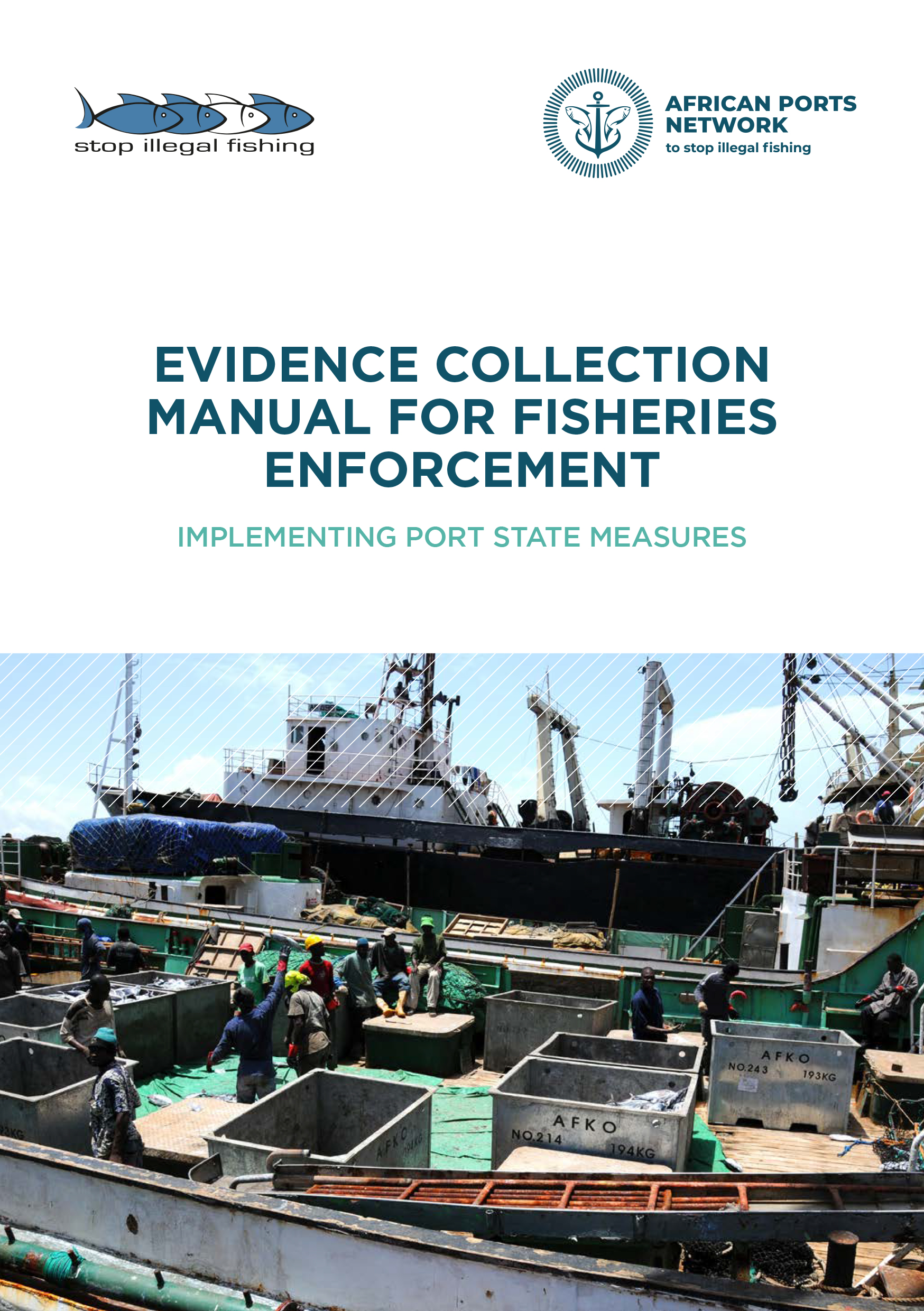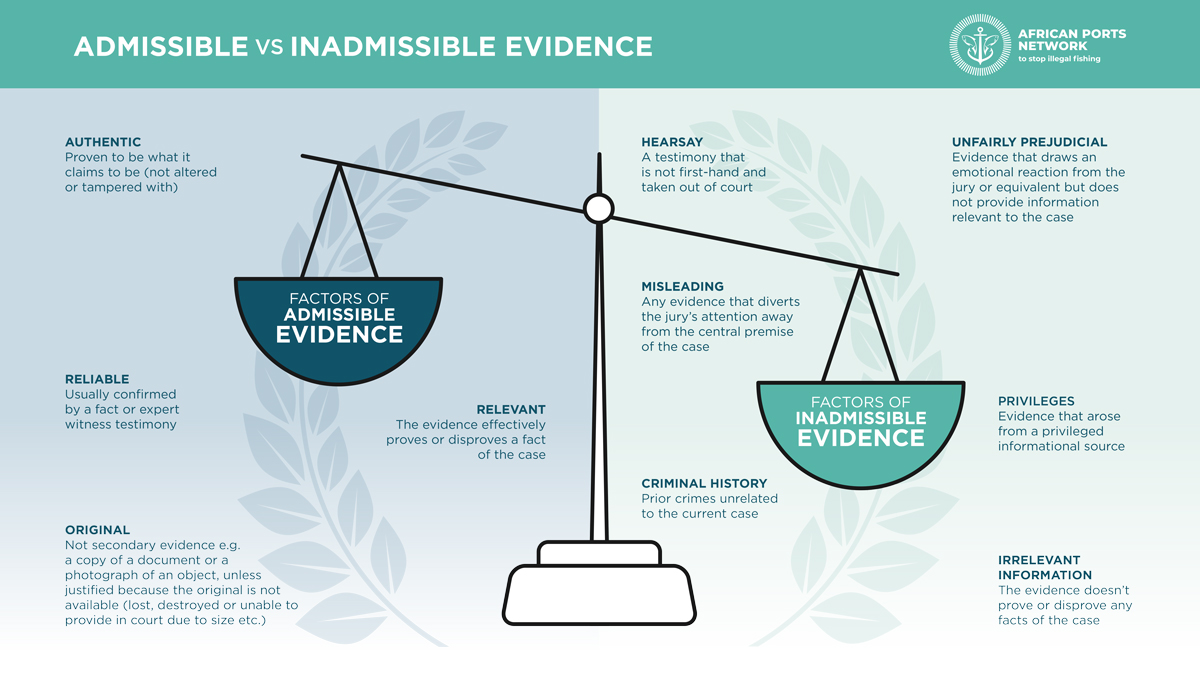
Evidence Collection Manual for Fisheries Enforcement: Implementing Port State Measures
The Evidence Collection Manual for Fisheries Enforcement: Implementing Port State Measures has been developed to assist fisheries enforcement officers, particularly those working in African ports, to gain an understanding about why evidence is important, different types and classes of evidence and how to collect and use evidence.
It provides case material from investigations and inspections to illustrate the importance of evidence collection and the challenges officers face. While this manual focuses on port State measures inspections, the principles and information contained in it will be relevant to many fisheries situations when evidence collection is required.
Fisheries enforcement officers collect evidence, firstly to determine whether there are grounds for taking enforcement action, and if so, to present the evidence to a court or tribunal to decide whether guilt has been established. Once guilt has been determined, the court or tribunal must decide what the appropriate sanction is for the violation. Following a conviction in a criminal court this can be a fine or imprisonment, or both, and the forfeiture of the instruments such as the vessel or gear or objects of the offence such as the fish caught without a licence.
Where administrative enforcement is taken, the sanction can be the issuing of an administrative fine by a compounding committee, and/or the suspension or revocation of the vessel registration or fishing licence.

For fisheries enforcement officers, understanding evidence types and classes, what makes evidence admissible and how to collect and use this evidence is an important addition to their knowledge and skills to ensure that those committing fisheries violations and crimes do not go unpunished.
Credits
The Evidence Collection Manual for Fisheries Enforcement has been produced by Stop Illegal Fishing as part of their support to the Port State Measures to Stop Illegal Fishing initiative, the FISH-i Africa Task Force and as part of the African Ports Network Toolkit.
